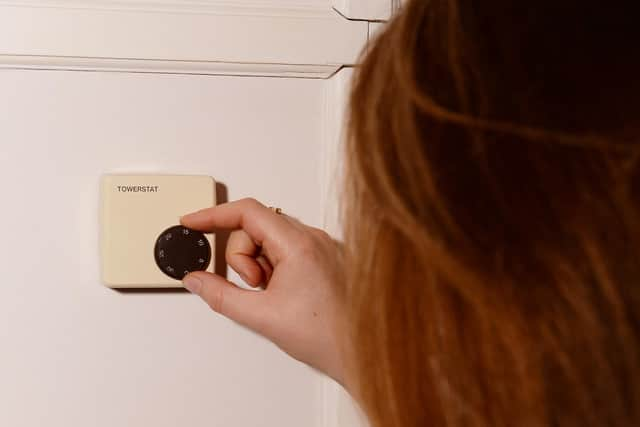Nearly 10,000 households in Bedford are struggling to pay their fuel bills
and live on Freeview channel 276
Nearly 10,000 households in Bedford are fuel poor, figures suggest.
Campaigners say the number of people across England unable to keep their homes warm is a “national scandal”.
Advertisement
Hide AdAdvertisement
Hide AdAn estimated 9,588 Bedford households experienced fuel poverty in 2019, the latest Department for Business, Energy and Industrial Strategy (BEIS) data shows.


At 13.9 per cent of those in the area, that was broadly in line with the England average of 13.4 per cent.
A household is considered to be fuel poor if they live in a property with low energy efficiency and would be pushed below the poverty line by housing costs and the energy bills needed to have a warm, well-lit home.
Nationally, around 3.2 million households were estimated to be fuel poor in 2019.
Advertisement
Hide AdAdvertisement
Hide AdProjections published by BEIS suggest this figure will drop by 180,000 between then and 2021, but fuel poverty charity National Energy Action (NEA) said there has been too little progress in recent years.
“Fuel poverty is a national scandal and affects people in every part of the country,” said NEA’s chief executive Adam Scorer.
He said this wasn’t helped by the demise of schemes like the green homes grant, which was launched in September to help homeowners install energy efficient improvements but was recently scrapped having helped less than 10 per cent of the homes it aimed to nationally.
But Mr Scorer added that there was a “huge opportunity” to tackle fuel poverty and climate change together, and called for large government programmes to help people on the lowest incomes and in the draughtiest homes.
Advertisement
Hide AdAdvertisement
Hide AdAcross different neighbourhoods in Bedford, fuel poverty rates ranged from 4.4 per cent to 31.9 per cent in 2019.
But these estimates are based on small sample sizes and so should be treated with caution, said BEIS.
Simon Francis, co-ordinator of the End Fuel Poverty Coalition, said variation in fuel poverty levels nationally was partly down to national policy and the state of historical housing stock.
But he said councils also have a “huge role to play” in alleviating fuel poverty, including by improving local housing and using central government grants to help those most at risk.
Advertisement
Hide AdAdvertisement
Hide Ad"Crucially, local authorities can ensure better enforcement of existing regulations on energy efficiency and property standards in the private rented sector,” he added.
The Local Government Association (LGA) said councils are committed to improving home energy efficiency and tackling fuel poverty, but called for longer-term funding to help them achieve national net zero ambitions.
An LGA spokesman added: “Councils should also be given greater flexibility around introducing landlord licensing schemes, so they can ensure private rented sector housing is also energy efficient.”
A government spokeswoman said 1.3 million fewer low-income households are living in the least energy efficient homes compared to 2010.
Advertisement
Hide AdAdvertisement
Hide Ad“We are committed to levelling up all regions of the UK, ensuring nobody goes cold in their own home, no matter where they live," she added.
"That’s why we recently announced £500 million in funding for local authorities to upgrade homes of thousands of low-income households across the country, many in deprived areas.”